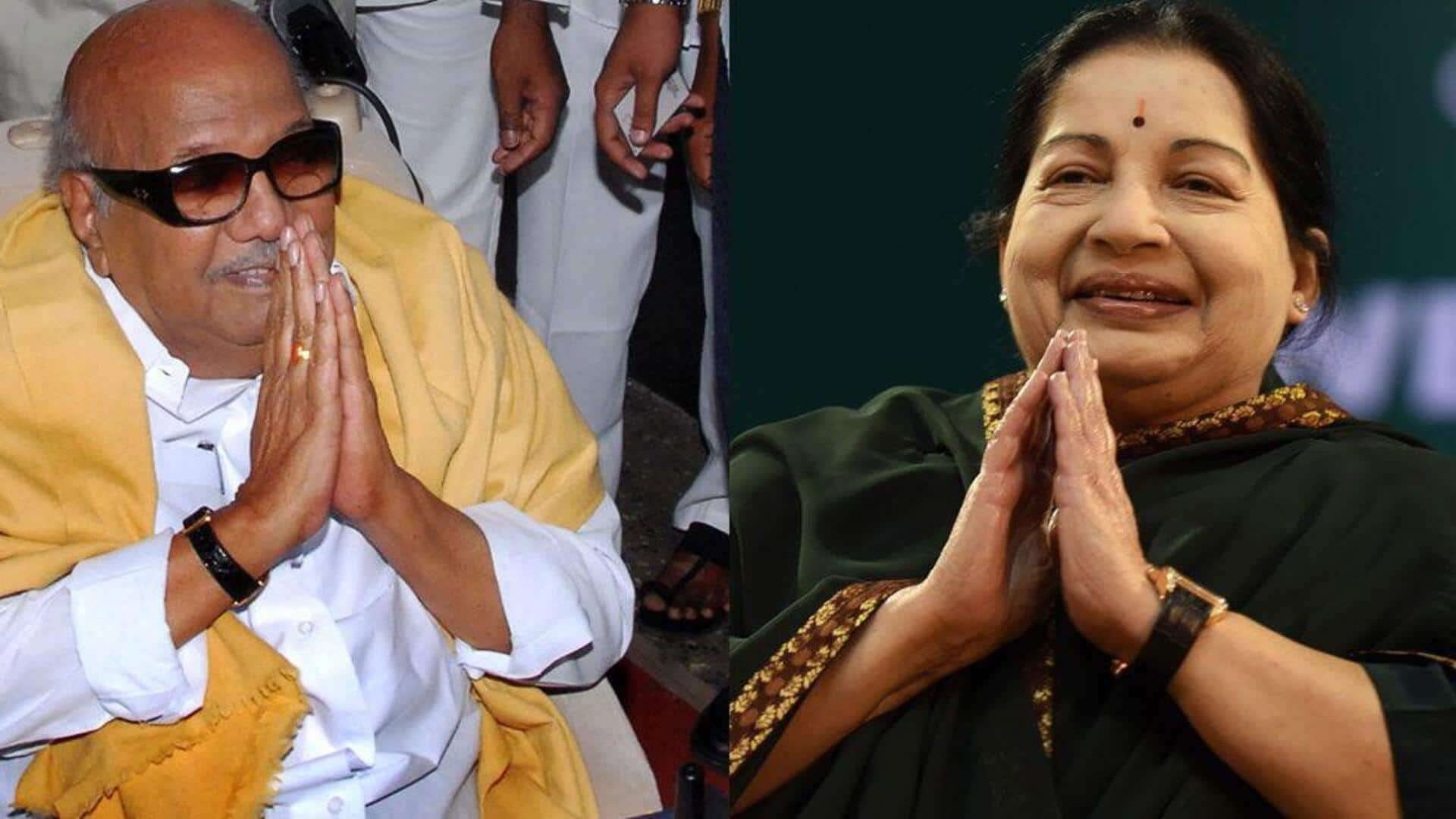
Jayalalithaa, Karunanidhi campaign in Tamil Nadu: AI-generated deepfakes raise concern
What's the story
The digital resurrection of two late Indian leaders, J Jayalalithaa and M Karunanidhi, using artificial intelligence to create deepfakes, has sparked controversy ahead of the 2024 Lok Sabha elections.
Political parties are utilizing advanced AI tools to generate deepfakes, replicating well-known faces and voices that appear authentic.
This campaign tactic has become quite popular in Tamil Nadu.
However, the use of this technology has raised concerns among officials and campaigners who fear it could undermine the credibility of Indian elections.
Context
Why does this story matter?
The emergence of technology capable of replicating politicians' voices and creating highly realistic videos has sparked significant concerns.
Union Minister Ashwini Vaishnaw had in November said deepfakes were "a serious threat to democracy and social institutions."
Divyendra Jadoun, the creator of The Indian Deepfaker, has seen a sharp increase in content requests, expressing concerns about the potential unethical use of deepfakes in the upcoming election, AFP reported.
AI campaigning
Late leaders' digital personas used in election campaigns
In Tamil Nadu, a video of the late Jayalalithaa, a former actress turned politician who died in 2016, is featured in an audio message criticizing the current state government.
Her digital persona declares: "We have a corrupt and useless state government," and rallies supporters to "Stand by me...we are for the people."
Similarly, Karunanidhi, who passed away in 2018, has been digitally resurrected in AI-crafted videos where he praises his son MK Stalin, the current chief minister of the state.
AI strategy
Deepfakes: An innovative and cost-effective campaign strategy
Senthil Nayagam, founder of Muonium, which created the AI video featuring Karunanidhi, stated that repurposing charismatic speakers is an innovative way to garner attention.
He added that employing deepfakes is a cost-effective campaign strategy compared to traditional rallies.
To recall, the Bharatiya Janata Party, led by Prime Minister Narendra Modi has been an early adopter of technology in election campaigning.
In 2014, the BJP broadened Modi's campaign outreach by employing 3D projections of the PM, virtually showcasing him at rallies.
AI misuse
AI-generated campaign material used to ridicule opponents
So far, AI-generated campaign materials have primarily been used to ridicule political adversaries.
For instance, a BJP youth wing leader shared an AI-created video of Delhi Chief Minister Arvind Kejriwal, after his arrest by the Enforcement Directorate on March 21.
The video shows him sitting behind bars, strumming a guitar and singing "Bhula dena mujhe... (Forget me now)."
Expert speaks
AI-generated content can easily be mistaken for reality
In another video, All India Majlis-e-Ittehadul Muslimeen leader Asaduddin Owaisi is depicted singing devotional Hindu songs.
A caption accompanying the video says "anything is possible if BJP wins again."
Joyojeet Pal—an expert on the intersection of technology and democracy from the University of Michigan—said ridiculing political opponents proves more effective than simply labeling them as "thugs" or "crooks," AFP reported.
Mocking opponents is a century-old tactic, however, Pal cautioned that AI-generated visual content can easily be mistaken for reality.